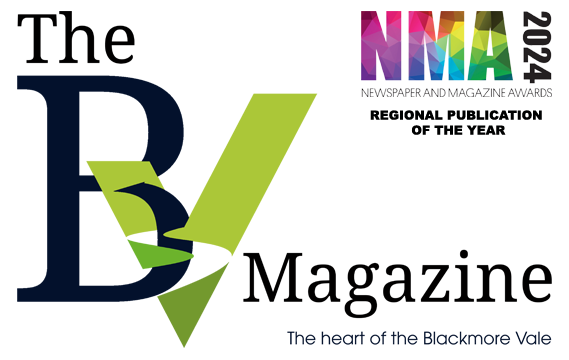The declining use of cash particularly affects the elderly and rural dwellers, says MP Chris Loder, but new regulations aim to protect access to cash
Over the last few decades, we have seen a fundamental shift in the patterns of personal banking. Cash has dominated our financial behaviour for centuries, but it has been overtaken in less than 40 years by the popularity of credit and debit cards – and, recently, contactless payments.
It puts users of cash in the Blackmore Vale and wider West Dorset in an untenable situation, and raises important questions about the future role of cash in the local and national economy.The Covid pandemic accelerated these trends. In 2021, only 15 per cent of payments were made with cash. The decreased reliance on physical cash is one of the main reasons bank branches and building societies have re-structured their business models and withdrawn from our high streets.
Here in the South West, we have felt this hardest: in the last decade, our region has experienced the largest fall in the number of bank and building societies by comparison with the rest of the UK.
Sherborne is no exception –
the town now only has a Lloyds Bank, which operates with reduced hours and doesn’t open on a Saturday. The Post Office on Cheap Street deals with cash, but only provides limited banking services. Natwest, Barclays and TSB have all come and gone, leaving users of cash and abandoned buildings in their wake.
Cash still required
Yet, for a market town, cash in integral in transactions between Sherborne’s traders and customers. It is a reliable, secure and simple form of payment, particularly so for those who are aged over 65, who live in rural areas, use cash for smaller purchases or budgeting; and those who are not used to using – or do not have access to – digital technology and the internet.
There is, therefore, still an evident need for banks and building societies to remain on our high streets. Many constituents have told me how important it is for them to be served in person when dealing with something as sensitive as their personal finances.
Automated teller machines (ATMs) can bridge the gap between digital and physical banking and fill the void left behind by bank closures. In Sherborne, there are five ATMs located across the town, but for rural-dwellers outside the town, it means a journey, perhaps up to 7km or more, just to access cash.
Have your say
Under a new framework recently announced by the Treasury, the vast majority of people and businesses should be no further than three miles (4.8km) away from withdrawing cash. This is a step in the right direction and will ensure that the most vulnerable cash users are protected. The Financial Conduct Authority has also been given new powers to ensure that banks and building societies protect access to cash.
Nonetheless, a blanket approach to the digitisation of personal banking risks excluding the most vulnerable and will disproportionately affect residents in rural areas. Many of my constituents, from Sherborne to Bridport and Dorchester, have no wish to manage their finances digitally but have effectively been forced to succumb to the changes of the banking and finance sector.
I’d be interested to know what your views are on this issue, what your preference is, and in what direction you think personal banking is going.
You can submit your views to my dedicated survey at chrisloder.co.uk/banking, or you can write to me at:
Chris Loder MP, House of Commons, London, SW1A 0AA.


